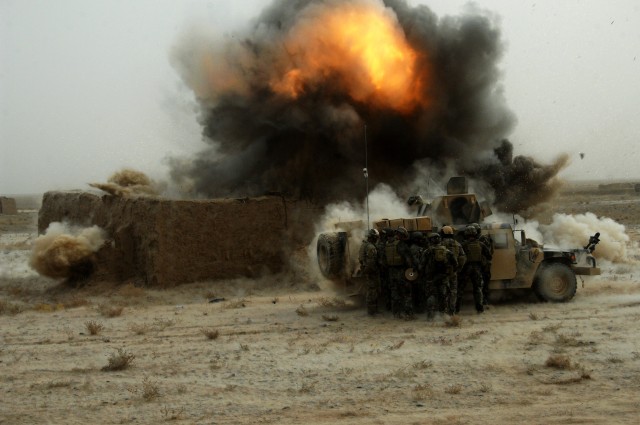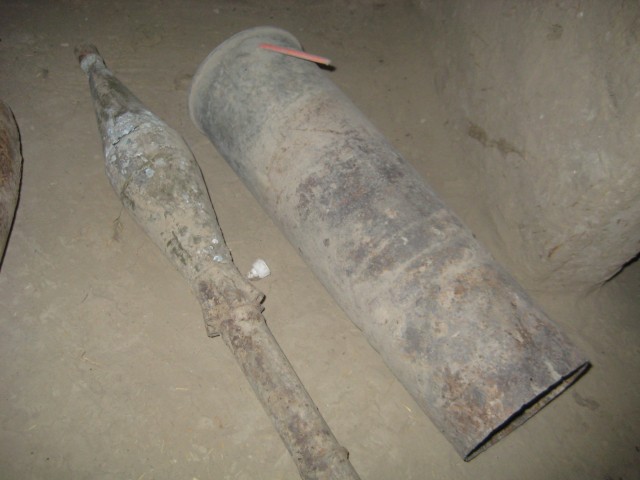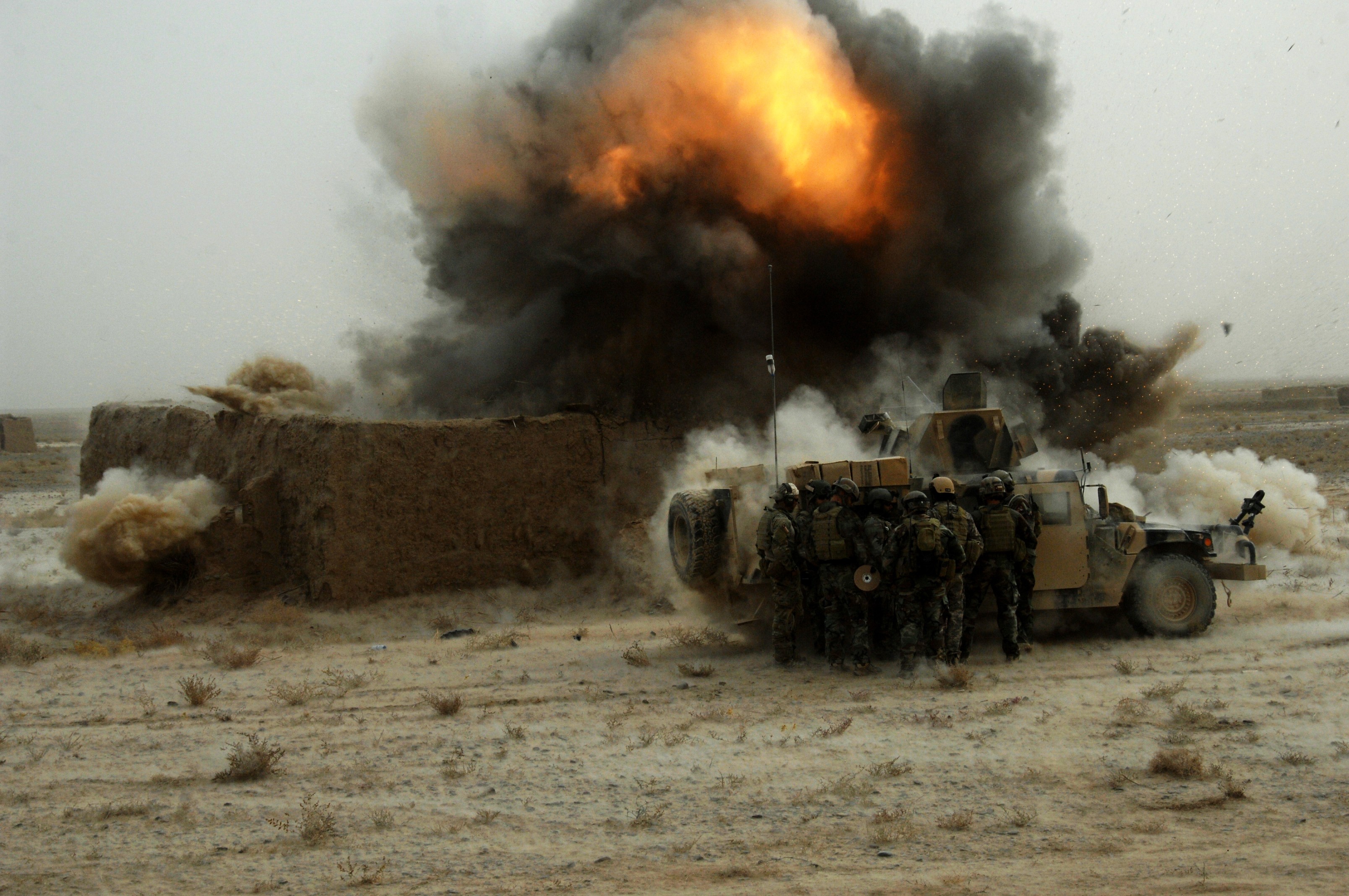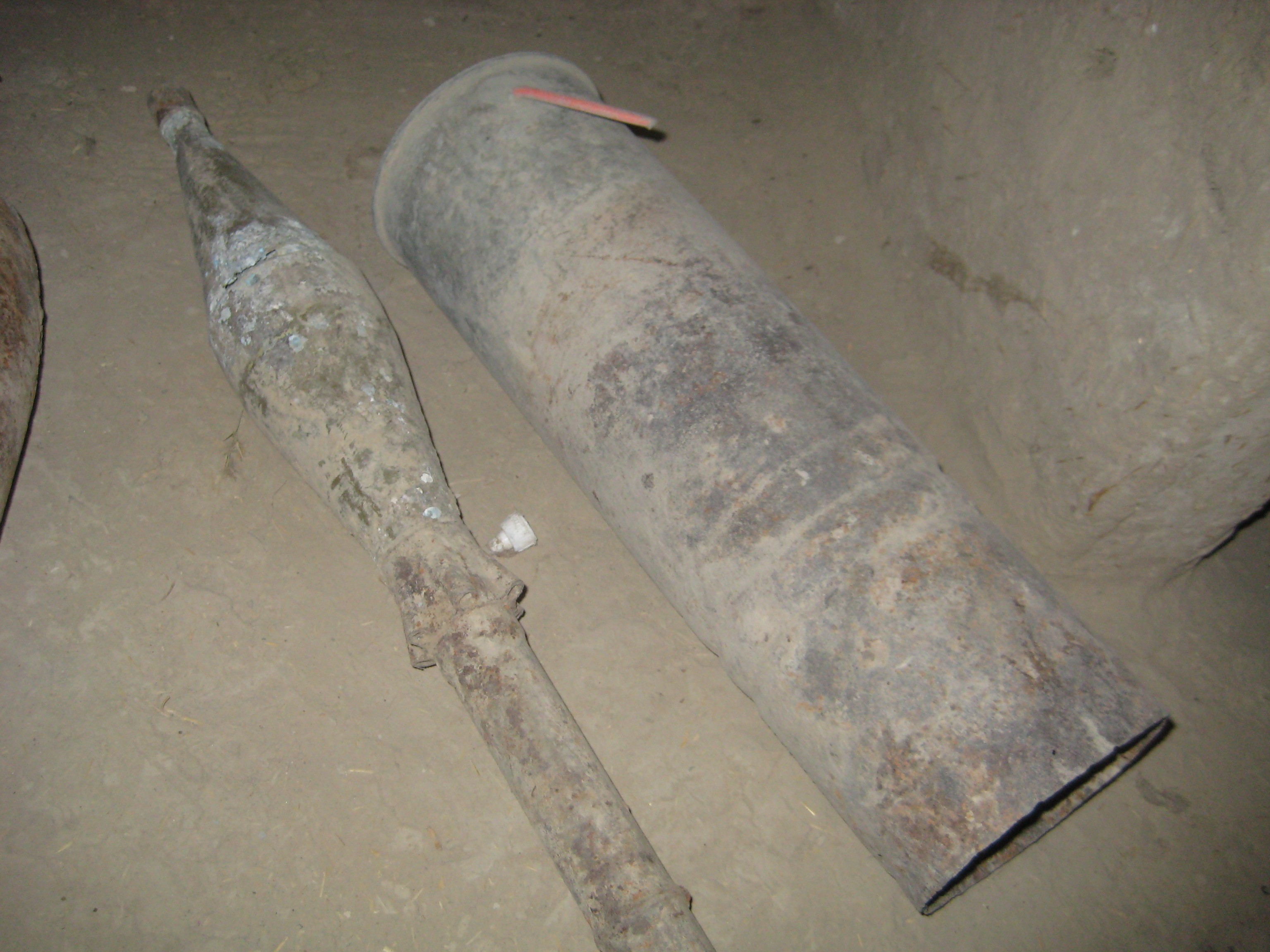KANDAHAR PROVINCE, Afghanistan -- In Afghanistan's Kandahar province, residents living in the districts to the north are taking advantage of the U.S. Department of Defense's Small Rewards Program, or SRP, and as a result, countless lives are being saved.
For many safety-minded people around the world, reporting stray weapons or munitions in their neighborhood to the police would be an automatic reaction, but in Afghanistan, a country that has been riddled with armed conflicts and wars, this hasn't always been the case.
The SRP, an initiative aimed at reducing weapons that often cause harm to Afghan citizens and international security forces, has been used in Afghanistan since 2005, according to the U.S. Central Command website.
A key part of the program is citizens passing along information on where to find weapons or munitions. This information is shared with U.S. Special Operations Forces through a tip line or by face-to-face interaction. Special Operations Forces follow up on these tips and if anything is found, the citizen who provided the tip is paid according to DoD guidelines on SRP.
At one location in Kandahar province, more than 30 different types of munitions have been turned in since the SRP began there in March. This total includes more than 90 mortars, 52 rocket-propelled grenades, 24 antipersonnel mines, and almost thirty 57 mm rockets.
"Any one of these could have been used in an [improvised explosive device]," said a SOF chief warrant officer working in Arghandab district, Kandahar province. "Thanks to ordinary Afghan citizens turning all this stuff in, none of these munitions made it into an IED."
In addition to what's brought into Afghanistan by the Taliban, the country still contains munitions left behind after the invasion and withdrawal of Soviet forces nearly 20 years ago. Some parts of the country have known and marked minefields. But other places contain munitions stored by insurgents, according to a SOF intelligence sergeant.
For Afghan citizens, a simple outdoor stroll takes some serious and careful thought. Many of these conditions are created by insurgents, who make Afghanistan dangerous for local citizens and international forces alike.
These conditions have motivated many Afghan citizens to provide tips on stray weapons that are being stored and used to inflict damage throughout the country, mostly by the Taliban. The results of a survey conducted by the Kabul-based Afghan Center for Socio-Economic and Opinion Research in December of 2009 and indicated only three percent of Afghan citizens view the Taliban in a very favorable light.
Afghan children occasionally report the munitions they discover to their parents. Sometimes, the children decide to move the munitions themselves. This scenario recently played out for U.S Special Forces in Kandahar province.
"We got a call on our tip line," said the SOF warrant officer. "A woman was calling and saying her son had found some grenades. We worked with her to keep it confidential and soon enough, her son brought the grenades to us."
Shortly before that event, the SOF warrant officer said "we had somebody bring in an entire IED."
When coalition forces are given the location of weapons and explosives, or are simply handed the materiel, as with the turned-in grenades, first they investigate. Then the items are collected and destroyed. This occurs in an established and secure area which is surrounded by ample cover and always a safe distance away from citizens and property. Lastly, the citizen who provided the information which led to the munitions discovery is paid in Afghanis, the currency of Afghanistan.
"It's a great arrangement," says a SOF captain whose unit has collected munitions as part of the program. "There's no doubt it in my mind this program is reducing IEDs. If our guys had not destroyed those [munitions], they'd still be out there as a threat, or worse; they would have already blown up, killing civilians or one of our guys."




Social Sharing